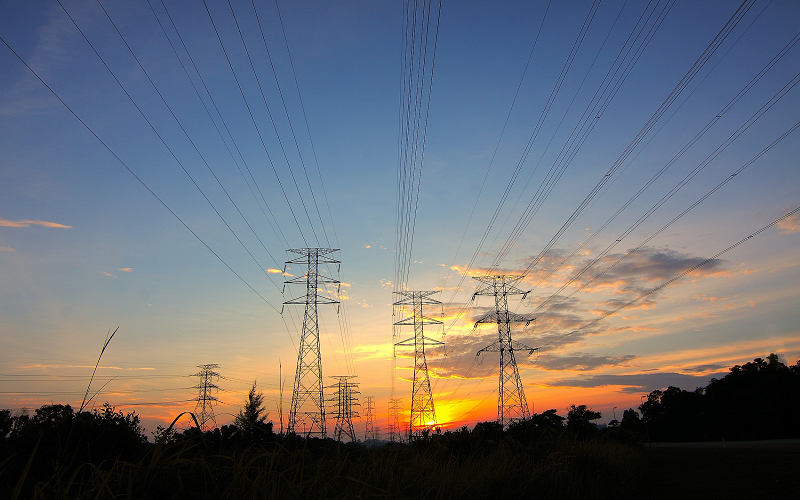
Quashing of the Minister of Energy’s Decision to Declare All CEC Transmission and Distribution Lines as a Common Carrier: The People v Attorney General and Energy Regulation Board 2020/HP/0575
the Act under section 2 as;… a company that—
- generates, transmits, distributes or supplies electricity;
- generates, transmits, distributes or supplies electricity solely or mainly in the interest of a group of associated companies, whether or not any excess electricity is supplied to any consumer who is not part of the group;
- operates a transmission network; or
- trades in electricity as an intermediary, as prescribed;
The terms and conditions referred to in section 15 that the enterprises have to agree on include wheeling tariffs. Therefore, the ERB can only determine the terms and conditions when the enterprises fail to agree.
4.0 The Background
The background to this matter is that after CEC and ZESCO limited were party to a contract to supply and purchase of power (the Bulk Supply Agreement or BSA) which expired on 31 March 2020. CEC has been the main supplier of power to the mines on the Copperbelt province of Zambia, consequent to which it has entered into various Power Supply Agreements (PSA) including one with Konkola Copper Mines (KCM) whose term expired on 31 March 2020 but was extended to 31 May 202o by consent of the parties.
Early 2020, between February and March, the Government of the Republic of Zambia (the Government) and CEC were engaged in negotiations for a new PSA to replace the BSA but the parties failed to reach an agreement with respect to the PSA. On 31 March, the Minister of Energy announced at a press briefing that a decision had been made to impose what were called unilateral and non-negotiable terms for an interim arrangement for PSA between ZESCO and CEC which CEC did not accept.
On the other hand, KCM owes CEC the sum of US$144 million. KCM does not dispute its indebtedness to CEC and the parties have had entered into a supplemental agreement to the already existing PSA which KCM undertook to liquidate the sum but defaulted on its obligation. On 28 May 2020, a meeting between KCM and CEC (the provisional liquidator) was held to facilitate the continued supply of power to KCM and to also formalize the settlement agreement of the amount outstanding and future payment for the supply of power to KCM. The electricity supplied to
KCM accounts for 47% of the total electricity that CEC supplies to its customers. Following defaults, in KCM’s obligation, CEC decided to restrict supply to KCM. KCM later proceeded to issue court process in the Kitwe High Court against CEC restraining CEC from discounting power supply.ZESCO Limited, in May 2020, requested the use of the CEC transmission network to supply an unknown client in the Copperbelt. CEC acknowledged that it was ready to start the negotiations to grant access to the transmission as long as the customer in question had a valid PSA with CEC and does not owe CEC.On 28 May 2020, the Minister of Energy wrote to CEC asking CEC to give a wheeling path to ZESCO. That is when CEC realized that the customer ZESCO was referring to was KCM. Because KCM owed CEC and the PSA had expired and KCM did not show willingness to enter into a new PSA, CEC refused to grant wheeling path to ZESCO. The Minister of Energy on 29 May 2020 through statutory instrument No.57 of 2020 declared ALL CEC transmission and distribution lines as a common carrier. Two days later the ERB through its Director-General wrote to CEC dictating a wheeling tariff of US$5.84/kw/month for use of its infrastructure without consulting CEC. CEC has also continued supplying KCM electricity in the absence of a valid PSA and despite KCM owing US$144 million.
CEC argued that the decision by the Minister of Energy was ultra-vires and affected CEC’s entire network including transmission and distribution lines that supply other customers on the Copperbelt and the DRC.
5.0 The decision by the High Court for Zambia quashing the decision of the minster declaring CEC transmission and Distribution lines as a common carrier
It is perhaps important to note that the Applicant’s first attempt at seeking leave for substantive judicial review proceedings was unsuccessful in the High Court. It, however, succeeded on appeal. The case was therefore taken back to the High Court and heard by Judge Mwikisa who delivered judgment on 26 February 2021.
The court found that the Minister’s decision to declare CEC transmission and distribution lines as a common carrier, through the passing of S.I no 57 of 2020, had taken away CEC’s rights to negotiate terms and conditions of use of its infrastructure in view of the fact that any enterprise can use

